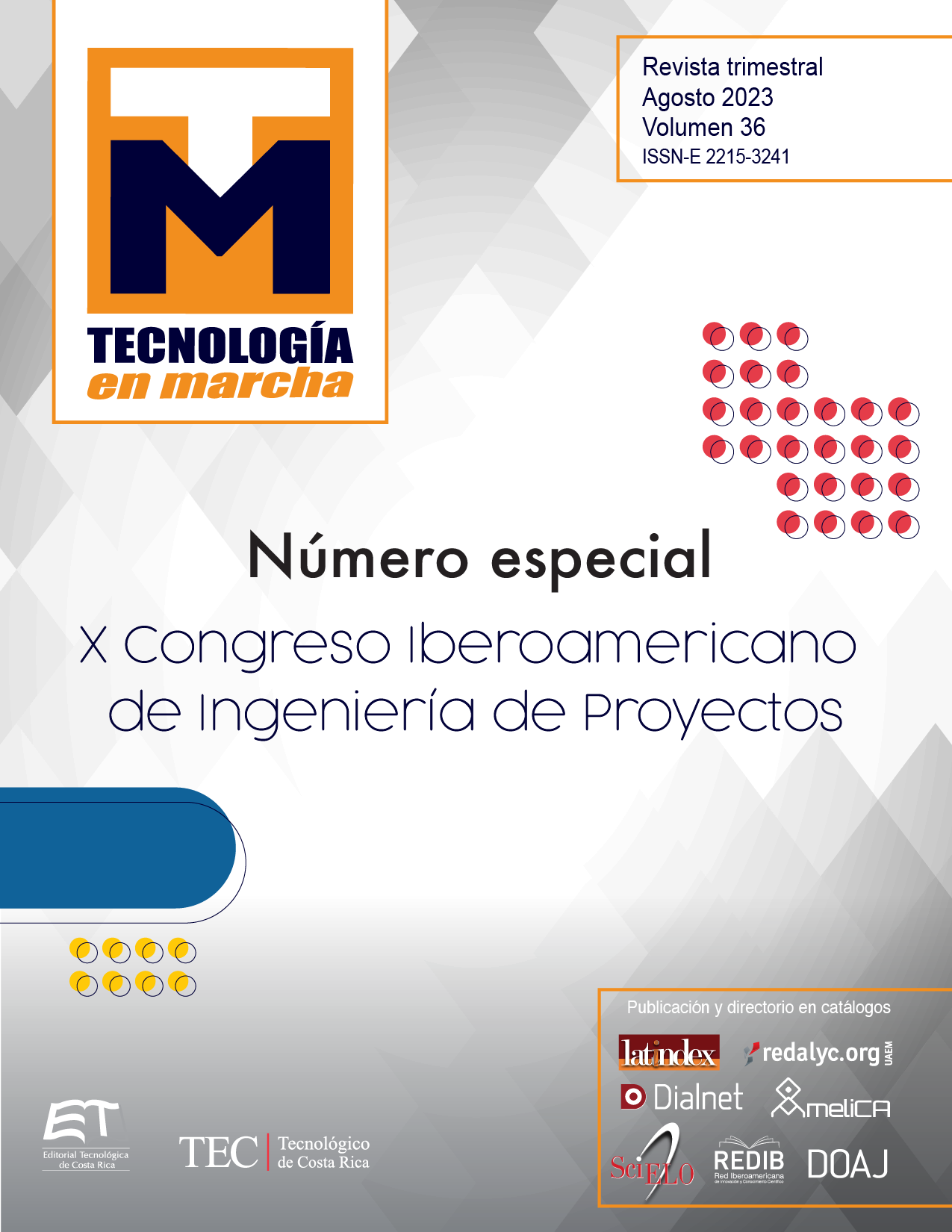Waste Management in housing construction projects in Costa Rica: theory versus practice
Main Article Content
Abstract
This article summarizes the results of several research projects that have been carried out at the School of Civil Engineering, under the author’s guidance, and framed in the research line of comprehensive waste management in construction. The objective of the research has been to generate information regarding the rate of waste generation in construction projects, at the moment only for housing projects, and to study their composition, in order to provide guidelines to national authorities for a possible regulation of the construction sector in terms of waste. One of the main hypotheses that have been studied is that there is a difference in the rate of generation of construction waste per square meter of construction depending on the type of construction used in the project. The methodology followed for these investigations has consisted of studying construction projects of various kinds during their gray work phase and quantifying all the waste that is produced on site, keeping track of weight and work progress. At the same time, characterizations by type of waste have been carried out in all cases, in order to show what type of construction material generates the greatest amount of waste, by weight and by volume. Additionally, the percentages of waste have been studied, carrying out a comparison between the amount of materials that enter each project and the waste that is reflected in the field, which was then compared with the percentages of waste that the theory indicates to estimate the budgets. Among the main conclusions reached by research to date are that waste is usually greater in practice than theory indicates, but that there are other variables involved in the generation of waste that make projects of the same type and even very similar to each other have very different generation rates. It has also been observed how projects built with modular systems do not precisely have lower waste generation rates, as indicated in theory. Additionally, it has been proven that construction projects that have more complex design elements tend to generate higher waste rates, which seems to be related to more elaborate architectural designs.
Article Details

This work is licensed under a Creative Commons Attribution-NonCommercial-NoDerivatives 4.0 International License.
Los autores conservan los derechos de autor y ceden a la revista el derecho de la primera publicación y pueda editarlo, reproducirlo, distribuirlo, exhibirlo y comunicarlo en el país y en el extranjero mediante medios impresos y electrónicos. Asimismo, asumen el compromiso sobre cualquier litigio o reclamación relacionada con derechos de propiedad intelectual, exonerando de responsabilidad a la Editorial Tecnológica de Costa Rica. Además, se establece que los autores pueden realizar otros acuerdos contractuales independientes y adicionales para la distribución no exclusiva de la versión del artículo publicado en esta revista (p. ej., incluirlo en un repositorio institucional o publicarlo en un libro) siempre que indiquen claramente que el trabajo se publicó por primera vez en esta revista.
References
Cámara Costarricense de la Construcción, 2019. Informe Económico del Sector Construcción. Dirección de Investigación y Desarrollo técnico. Costa Rica. Recuperado de: https://www.construccion.co.cr/Multimedia/Archivo/8613
Cámara Costarricense de la Construcción, (2021). Informe Económico. https://www.construccion.co.cr/Multimedia/Archivo/11064#:~:text=Para%20el%202021%20se%20esperaba,privada%20en%20el%20territorio%20nacional.
Instituto Nacional de Estadística y Censos, 2020. Encuesta Continua de Empleo. Recuperado de: https://www.inec.cr/sites/default/files/documetos-biblioteca-virtual/reeceiiit2020.pdf
Abarca-Guerrero, L., Leandro-Hernández, G., Hasbum-Fernández, I., & Solano-Soto, J. (2019). Gestión de materiales de construcción en Costa Rica para reducción de residuos: barreras y motivaciones. Revista Tecnología En Marcha, 32(6), Pág. 65–77. https://doi.org/10.18845/tm.v32i6.4230
Ley N° 8839 Gestión Integral de Residuos. 24 de Junio del 2010.
Arce, E.M. (2017) Validación de la Guía de manejo eficiente de materiales de construcción. Proyecto Final de Graduación para optar por el grado de Licenciatura en Ingeniería Ambiental. Instituto Tecnológico de Costa Rica. Cartago, Costa Rica.
Leandro, A. (2008). Manejo de desechos de la construcción. Tecnología en Marcha, 21(4), 6063. Recuperado de: https://revistas.tec.ac.cr/index.php/tec_marcha/article/view/226
Cruz, E. (2010). Diseñar un sistema de manejo de desechos sólidos para una empresa constructora de edificios de apartamentos. Trabajo de graduación para obtener el grado de Licenciatura en Ingeniería Civil. Universidad de Costa Rica, Costa Rica.
Abarca, L., Leandro, A. (2016). Guía: Manejo Eficiente de Materiales de Construcción. https://construccionsostenible.cfia.or.cr/wp-content/uploads/2018/08/gu%C3%ADa-manejo-eficiente.pdf.
Marín, F. (2021). Caracterización y cuantificación de residuos sólidos de construcción para viviendas individuales tipo apartamento en condominio con sistema constructivo modular tipo Armabloque en la Gran Área Metropolitana. Proyecto Final de Graduación para optar por el grado de Licenciatura en Ingeniería Civil, Universidad de Costa Rica. San José, Costa Rica.
Fernández, D. (2015). Evaluación de un nuevo sistema constructivo de mampostería modular de concreto en Costa Rica. Proyecto Final de graduación para optar por el grado de Licenciatura en Ingeniería Civil, Universidad de Costa Rica.
Rímolo, S. (2021). Identificación, categorización y cuantificación de residuos de construcción en viviendas de mampostería confinada. Proyecto Final de Graduación para optar por el grado de Licenciatura en Ingeniería Civil, Universidad de Costa Rica. San José, Costa Rica.
Leandro, A. (2007). Administración y manejo de los desechos en proyectos de construcción. Etapa 2: Alternativas de manejo. [PDF]. Instituto Tecnológico de Costa Rica (TEC). Recuperado de: https://repositoriotec.tec.ac.cr/bitstream/handle/2238/492/Informe%20final%20Manejo%20de%20Desechos%20enla%20construcci%EF%BF%BD%EF%BF%BDn%20Etapa%20II.pdf?sequence=1&isAllowed=y
Bolaños, S. (2021). Análisis, cuantificación y caracterización de residuos de construcción para sistemas constructivos modulares de viviendas en serie. Proyecto Final de Graduación para optar por el grado de Licenciatura en Ingeniería Civil, Universidad de Costa Rica. San José, Costa Rica.

